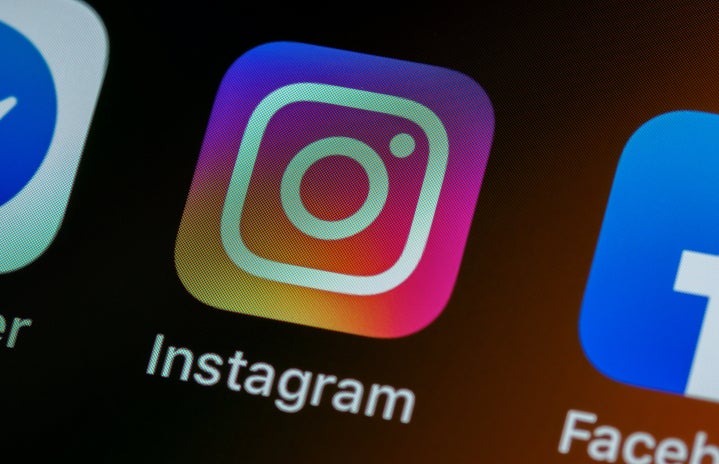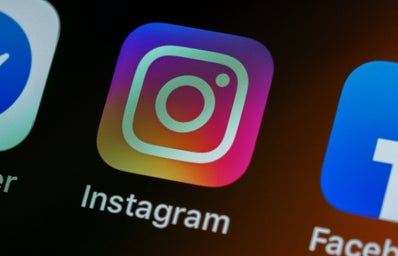When it comes to Instagram, I’m as guilty as anyone for posting pictures that make my life look as awesome as possible. After taking a cute picture, I immediately strategize how I will display it on social media, adding enough filters to make the original picture unrecognizable and planning the caption as if it was as crucial as a graded research paper. I even plan what time of day I post to Instagram, knowing that posting a picture too early or too late in the day will result in less people seeing it.
Why do I go through all this trouble? Simply because I find satisfaction and social acceptance with every “like” I receive. To me, these “likes” represent a social-backing; that my Instagram followers accept and like what I’m doing or what I look like. A lot of likes means that I have successfully displayed a seemingly perfect glimpse of my life to the public, and I can rest well knowing that it was well-received by my peers.
A friend of mine recently commented on one of my pictures: “you’re so perfect!” At the time, I happened to be on the couch, stressed about school, concerned about certain friendships, worried about my weight, and anxious about graduation. That’s when I realized that I’m nowhere near perfect; that Instagram was simply a heightened version of my life, one that I wished I lived and wanted my followers to think was reality. I couldn’t help but feel a slight pang of guilt for the lies that I had been posting.
Unfortunately, Instagram has become a toxic addiction to a lot of our generation, including myself (you may enjoy the irony of the fact that I recently wrote this article). It’s easy to get caught in the hype of oversharing, over-editing, and constantly checking for new updates. Certainly, pictures are no longer things that sit on a coffee table in a photo album, and these dangers related to Instagram go to show that an over-representation of our lives via social media could actually be harming us.
We use it to brag.
Everywhere you look on Instagram, you see happy, healthy, perfect people, all with seemingly perfect lives. There’s always a girl kissing her boyfriend during the sunset, traveling the world, or showing off her thin beach bod in a bathing suit. In the midst of these well-edited and strategically angled pictures, we tend to forget about the girls who may be going through a breakup, struggling with finances, or insecure about their bodies. Because, in the real world, these are real issues, and they are obstacles that real people face every day. Social media has become a medium by which we feel the need to show people how much fun we’re having, how much we love our significant others, how much money we have, or how good the food we are about to eat looks. What are we trying to prove? I love my boyfriend, being outside, and good food, and I don’t need to put it all on Instagram to validate that.
It’s a popularity contest.
It seems like these days, there is no better feeling than getting a lot of Instagram likes. We seem to find value and relevancy in a person based on how many followers they have, and how many likes they get on each picture. I will be honest; I have deleted pictures in the past that didn’t get as many likes as I had hoped. In fact, there are an extensive amount of apps, articles, and websites that give advice on how to become “Insta-famous”, or allow users to purchase likes or followers. Which leads me to ask why? I cannot fathom why someone would actually spend money to receive fake likes. As college students, the dynamic of our friend groups have shifted. The presence of a “popular crowd” is behind us, and it seems as though we are seeking other ways to define our popularity. And, this is where the desire for a “successful” Instagram account comes in. TFM even singles out their favorite Instagram accounts via their “Instagram Babe of the Day” posts. It’s easy to become caught up in what could be considered a competition of likes, followers, and social acceptance.
It promotes feelings of jealousy, doubt, and exclusiveness.
There has been many times where I have checked Instagram, only to see a group of my friends hanging out without me. I was hurt, jealous, and annoyed. How could they post a picture having fun without me? *In the voice of Michelle Tanner* How rude! It was as though they posted it just for me to see, just to brag to me. The knife just gets twisted when the picture receives over 100 likes! Okay, this might be a little dramatic, but it sometimes hurts to see people having a better time than you. When I’m having a bad or boring day, seeing pictures of people doing things that I wasn’t invited to do doesn’t do much for my mood or self-esteem. In a less superficial aspect, I truly believe that having such immediate access to what other people are doing takes a toll on how we view our own lives. Constantly seeing girls with perfect bodies makes us question or dislike our own. Constantly seeing people get engaged makes single girls feel lonely. Constantly seeing groups of girls spending time together and having fun makes us feel left out. There’s no doubt that this constant insight into what other people are doing is changing how we view ourselves. And sadly, it’s not for the better.
In a more abstract definition, Instagram is a projection of our actual lives. It is essentially our way of branding ourselves; our way of displaying how we want to be perceived in the public eye. Our Instagram accounts are a collection of filtered images of us at our absolute best: our happiest and prettiest times. But, just like the filters we use to edit these pictures, Instagram is a filtered version of our lives.
Collegiettes, I encourage you all to not only remember this, but to be inspired to celebrate the simplicity and imperfections of life that are often hidden under the mask of social media. None of us are perfect, and we all face the struggles of boys, college, money, body image, and life. If the Instagram culture could come together to embrace these struggles and imperfections, our real world would be a much better place.



